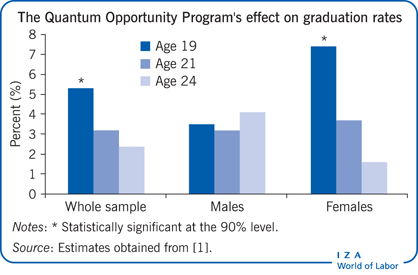Elevator pitch
Mentoring programs such as Big Brothers Big Sisters of America have been providing positive role models and building social skills for more than a century. However, most formal mentoring programs are relatively novel and researchers have only recently begun to rigorously evaluate their impact on changing at-risk youth’s perspectives and providing opportunities for them to achieve better life outcomes. While a variety of mentoring and counseling programs have emerged around the world in recent years, knowledge of their effectiveness remains incomplete.
Key findings
Pros
Rigorous studies of the effectiveness of mentoring programs find positive but modest effects on some mentees.
By providing positive role models, mentors promote resiliency among at-risk youth.
Mentors help to build mentees’ (frequently weak) social skills.
Community-based after-school programs can provide safe havens where youth can express themselves and receive guidance in engaging in social and community activities.
Activities to improve youth’s social and emotional skills are most effective among younger children and at-risk youth.
Cons
Mentoring programs tend to be better at improving youth’s noncognitive and social skills than their academic performance.
Positive effects are small and tend to dissipate quickly.
Mentors may overprotect youth, reducing their costs of engaging in criminal activity and other risky behaviors, and weaken the ties between youth and their parents, breaking important social bonds.
Mentoring programs may increase enrollees’ awareness of their disadvantages, which can lead to disappointment and risky behaviors.
Grouping high-risk youth can expose them to negative peer influences, which is associated with increased substance abuse, delinquency, and violence (“deviancy training”).
